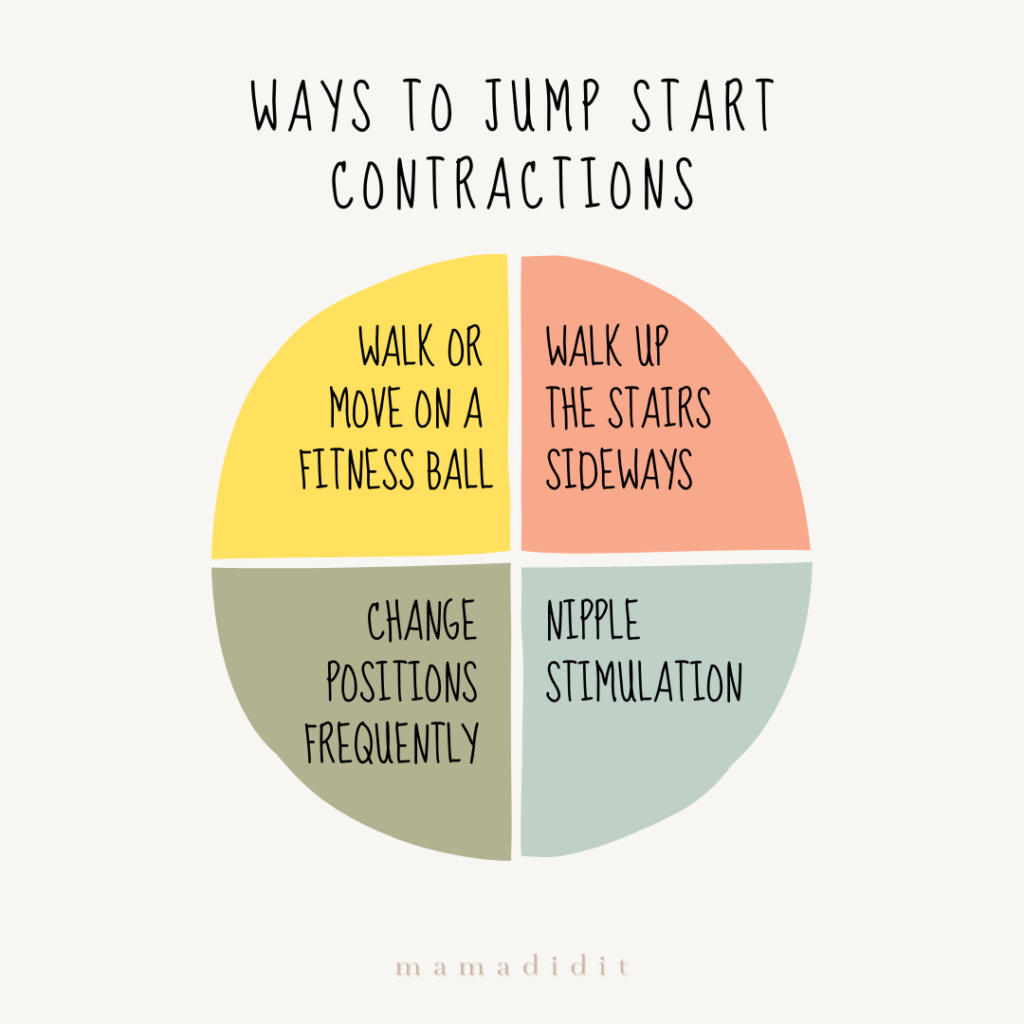This is a common scenario in the birth world. Did your water break? Is it something else? Let’s look at what is happening if you are 37 or 38 weeks pregnant with leaking fluid and no contractions, from a birth nurse.
Whether 37 weeks, 38 weeks, 39 weeks, and so on, one of the top questions I get as a childbirth educator is “How do I know if my water broke?” Let’s look at this situation: “38 weeks pregnant with leaking fluid and no contractions,” and how to tell what’s going on. Plus, how to jump-start contractions.
First off, it’s important to say that only in 10% of pregnancies does the water breaks as a first sign of labor. 90% of labors begin with contractions. How completely different than what we see in most tv series! It is far more common for a mom in her third trimester to pee on herself than for her bag of water to rupture. But it is also important to know for sure if your water has broken, and not to blow it off. We have a nurse’s trick on how to tell if your amniotic sac ruptures that I’m including below.
That being said, there are 10% of pregnant women who do experience their water breaking first. Weeks of pregnancy matters in this. Risk factors increase greatly in preterm premature rupture of membranes (preterm prom). If you are less than 37 weeks full term, and feel your water has broken, call your doctor right away.
If a mom ruptures too early, she will be placed on bed rest. At times the amniotic sac will mend if it is a small hole. This puts her at an increased risk of complications and she will need to be monitored closely.
What does it mean for the “water to break”
Whether you call it water releasing, water breaking, or rupture of membranes, it means the same thing. The sac of amniotic fluid has a leak in it. This causes amniotic fluid leakage that can be a slow leak, a slow trickle, or a large gush. At times this fluid-filled sac only has a small hole, so the pregnant woman will experience a slow, but ongoing release of fluid onto her underwear.
The amniotic fluid cushions and protects your baby through all of pregnancy. Though when an amniotic sac breaks it is usually followed with uterine contractions, there are cases where the fluid leaks and labor doesn’t start. No need to panic. Try walking around, walking sideways up and down stairs, and seeing if contractions begin. Change positions frequently. Manual nipple stimulation or using a breast pump can cause the onset of labor. Check with your health care provider and see what they recommend.
Pregnant with Leaking Fluid and No Contractions
What to watch for if you think your water breaks:
We nurses, tell you to think of the word “coat” if you feel like your water has broken. Truth be told, you won’t be thinking about the word “coat.” But there are some things to notice if your water breaks. Here’s what your care team will be asking:
Color: What is the color of the fluid? Is it clear or with a pinkish-tinge? Is it brown? When amniotic fluid is brown, it indicates that your baby has pooped in the womb. This needs to be reported immediately because it can mean fetal distress.
Odor: This should smell like a normal, fleshy odor. If you smell a foul odor, let your healthcare provider know. This could be signs of infection.
Amount: The amount of fluid is important to note. How much fluid is it? Was it an obvious gush of fluid or a small trickle of fluid? Would it have soaked a maxipad?
Time: When membranes are ruptured for a long period of time, it puts you at an increased risk of infection. If you think your water has broken, note the time. It helps your provider know if you need infection protection.
Nurse’s Trick to Tell if Your Water Has Ruptured:
If you think your water has broken, but are unsure, put on a sanitary pad or panty liner. Wait one hour. If the pad is wet after one hour, your water probably broke. If it isn’t, you probably peed a little. No shame in that. After the 37th week of pregnancy, your baby’s head drops lower into your pelvis. This adds pressure to your bladder and can cause occasional leakage.
Pregnant with Leaking Fluid and No Contractions
What to Do and Next Steps:

If you did the nurse’s trick above and you still feel your water is broken, but contractions haven’t started on their own, try these things: (Here’s the part where I tell you to always check with your doctor before doing something new.)
- Walk: taking a walk can start contractions on their own. You can also use a fitness ball to incorporate movement without exerting too much energy.
- Walk up the stairs sideways: This can help contractions start, strengthen, and help baby engage into the pelvis. Be sure to give both the right and left sides equal amounts of time in being the lead up the stairs. If you don’t have stairs, try walking a curb with one foot on the road and one foot on the curb.
- Change positions frequently. Changing positions can alleviate discomfort and help get baby into position. This can also help contractions get into a pattern. For example, lay on your left side, lay on your right side, sit on a fitness ball, or sway your hips.
- Nipple Stimulation. Using a soft washcloth, Cover your nipples and gently rub. A breast pump on a low setting can be used as well. Nipple stimulation releases oxytocin which causes contractions.
If at any time you feel an umbilical cord in your vagina, please call your healthcare provider. Feeling an umbilical cord in your vagina is an emergency! Other reasons to call would be leaking brown amniotic fluid or if contractions won’t start on their own.
Other Signs of Labor:
The start of labor usually begins with labor contractions. Other signs are the bag of fluid ruptures, bloody show is present, the mucus plug passes, and you have increased vaginal discharge.
Now is a good time to visit How to Prevent Perineal Tears. It’s not too late to squeeze a few of these in!

